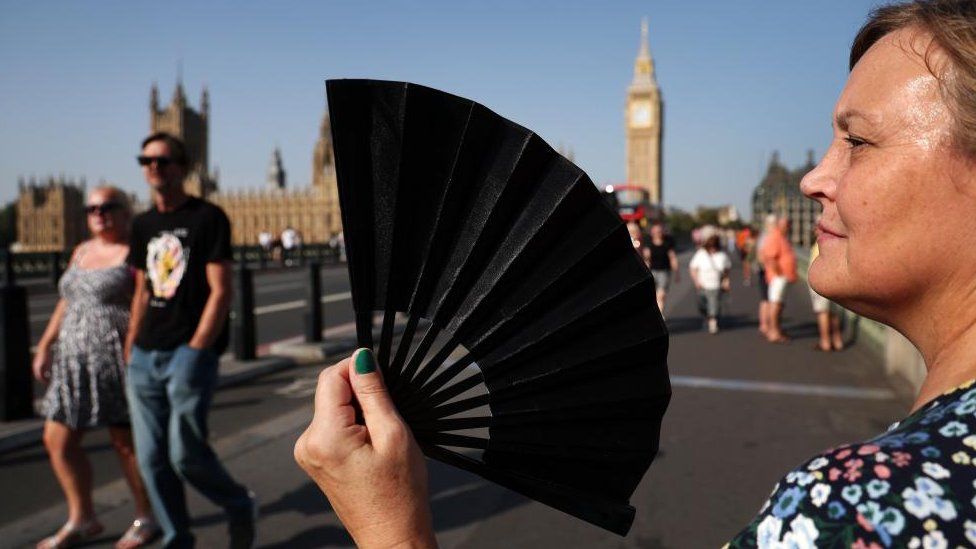
Sunday has become the seventh day in a row for temperatures to exceed 30C (86F), as the unprecedented September heatwave goes on.
It comes as Saturday was provisionally named the hottest day of the year so far, with 32.7C recorded in Heathrow.
But the heat will largely be centred on southern England, with many parts of the UK soon facing thundery downpours.
A yellow Met Office weather warning for thunderstorms is in place from 14:00 BST to 23:59 on Sunday.
The alert applies to most of Northern Ireland, parts of northern England and Wales, and parts of southern Scotland.
Up to 50mm (2in) of rain could fall in under two hours and “large hail and lightning are likely additional hazards”, the Met Office said.
The warning means some people could also be in store for flash flooding and strong winds – with possible interruptions to road access and public transport.
BBC Weather presenter Sarah Keith-Lucas said Sunday would be another very hot day, especially in the south, with temperatures of 32C possible.
Further north there is a chance of more widespread showers and thunderstorms later in the day, but southern and eastern parts should stay dry.
Meanwhile, an amber heat-health warning issued by the UK Health Security Agency is in effect for nearly every area of England until 21:00 on Sunday.
This indicates the effects of high temperatures could be felt across the whole health service.
Prolonged heat above 30C is a risk for older people and those with respiratory or cardiovascular diseases.
And despite another sweltering day for some, the record-breaking September heatwave is expected to give way through the early parts of next week, as cooler air reaches all areas of the UK.
Heatwaves have become more frequent, more intense, and last longer because of human-induced climate change.
Last year the UK recorded temperatures above 40C for the first time. Scientists said that would have been “virtually impossible without climate change”.
The world has already warmed by an average of 1.1C since the industrial era began and temperatures will keep rising unless governments around the world make steep cuts to greenhouse gas emissions.







